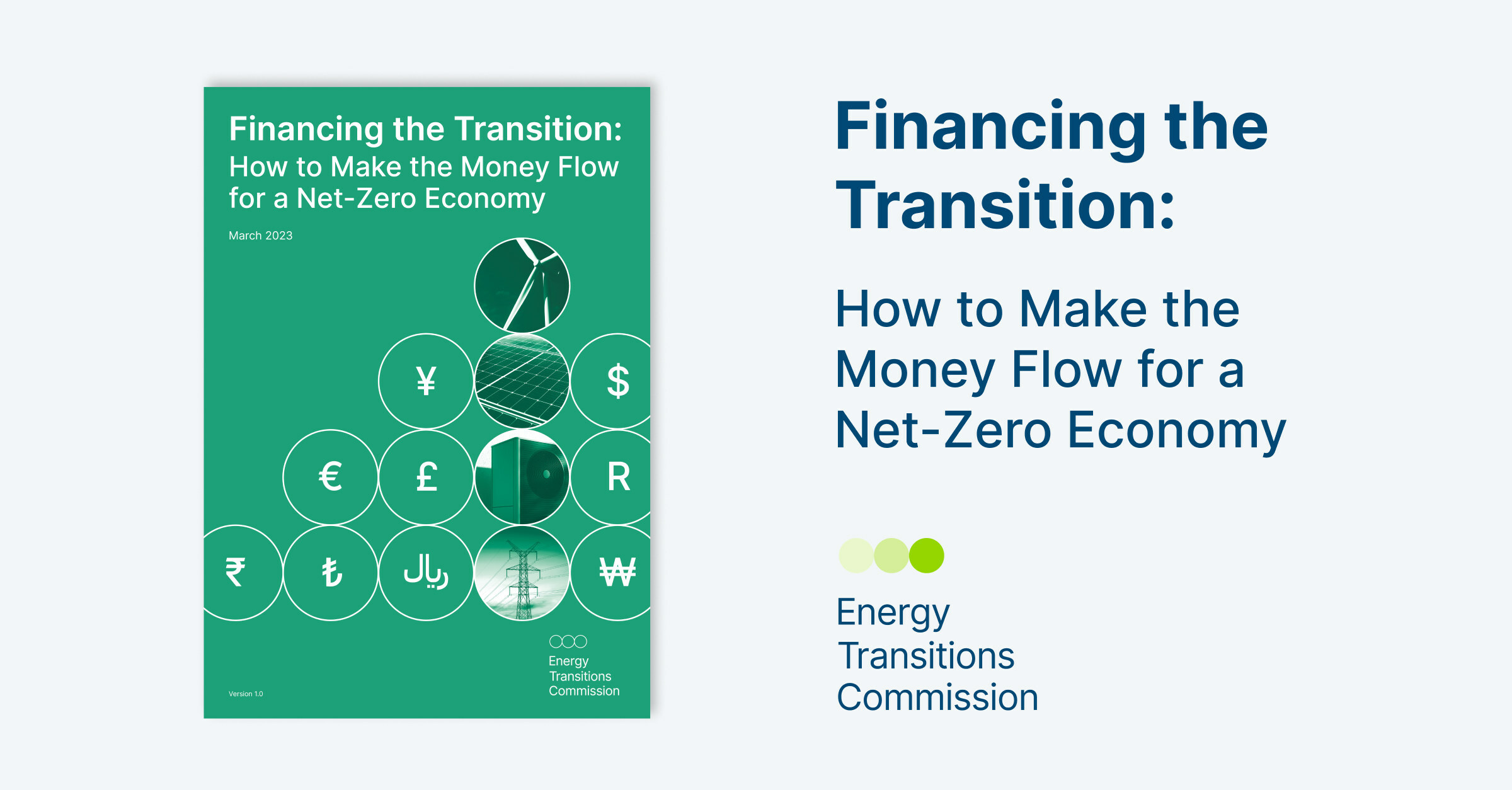
Energy Transitions Commission’s report on how to finance a net-zero economy
by CM staff

New report from ETC quantifies the financial need and identifies policies required to unleash investment on the scale required.

New Energy Transitions Commission Report, Financing the Transition
LONDON — Investments in clean energy must quadruple within the next two decades according to the Energy Transitions Commission (ETC). In its latest report, Financing the Transition: How to make the money flow for a net-zero economy, the ETC highlights the importance of strong government policies relating both to the real economy and to the financial system if finance is to flow on the scale required. It also identifies “concessional/grant” payments needed to support early coal phase-out, end deforestation and finance carbon removals.
Around $3.5 trillion a year of capital investment will be needed on average between now and 2050 to build a net-zero global economy, up from $1 trillion per annum today. Of this, 70 per cent is required for low-carbon power generation, transmission, and distribution, which underpins decarbonisation in almost all sectors of the economy.
Real-economy policies must create strong incentives for private investment in the energy transition. Examples include setting ambitious targets for renewable generation by 2030, carbon prices and product regulation to drive decarbonisation in heavy industry, aviation and shipping, and specified date bans on the sales of internal combustion engines (e.g., by 2035 at the latest).
The report mentions other key actions including various forms of financial regulation, targeted fiscal support for the development and initial deployment of new technologies, and net-zero commitments from financial institutions.
“Adequate flows of finance are the key to delivering a net-zero future and limiting the impact of climate change. Private investment, government and philanthropic money are needed to deliver the large-scale funding and international financial flows to ensure we move from targets to action and deliver a low-carbon global economy,”said Adair Turner, Chair, Energy Transitions Commission.
Part of the investment needed will be offset by reduced investment in fossil fuels, cutting the $3.5 trillion per annum requirement to a net $3 trillion. This is equivalent to 1.3 per cent of the likely average annual global GDP over the next 30 years. These investments will also create a lower operating cost energy system than today which could realise savings of $2-3 trillion a year by 2050 and continue thereafter, depending on how fossil fuel prices evolve. In middle- and low-income countries, much of the investment would be required to support economic growth even in the absence of a climate change challenge.
The energy transition is capital intensive, pointing to a peak in investments around 2040 when building the energy system of the future, before falling to a lower asset replacement rate thereafter.
To read the full report, visit: https://www.energy-transitions.org/publications/financing-the-transition/